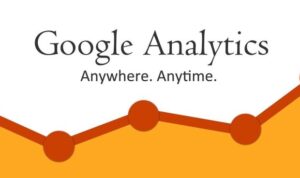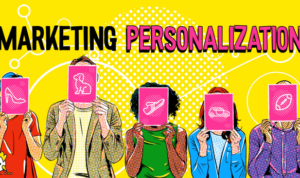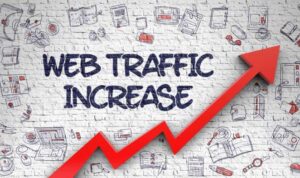Creating Social Media Content for Events dives into the essential aspects of crafting captivating content to boost event visibility and attendance. From interactive posts to user-generated content, this guide covers it all with a fresh and trendy vibe.
Whether you’re a seasoned event planner or just starting out, mastering social media content creation can take your events to the next level.
Importance of Social Media Content for Events

In today’s digital age, social media has become a powerful tool for promoting events and reaching a wider audience. Creating engaging social media content is crucial for capturing the attention of potential attendees and generating buzz around the event.
Social media content can help increase event attendance and engagement by creating excitement, building anticipation, and encouraging interaction. By sharing compelling visuals, informative posts, and interactive content, event organizers can pique the interest of their target audience and motivate them to participate.
Successful Event Promotions through Social Media Content
- Utilizing eye-catching graphics and videos to showcase event highlights and key attractions.
- Running interactive contests or giveaways to incentivize audience participation and create a buzz.
- Collaborating with influencers or industry experts to endorse the event and reach a larger audience.
- Creating engaging polls or surveys to gather feedback from attendees and tailor the event experience.
- Sharing behind-the-scenes content to provide a sneak peek into the event preparation and build excitement.
Types of Social Media Content for Events

When it comes to promoting events on social media, there are various types of content that can be utilized to engage with the audience and create buzz. From videos to interactive polls, here are some effective strategies:
Videos
Creating promotional videos for events can be a powerful way to capture the attention of your audience. These videos can showcase highlights of the event, behind-the-scenes footage, or even testimonials from previous attendees.
Images
Visual content such as images and graphics can help in creating a strong visual identity for the event. Sharing sneak peeks, event posters, or infographics can generate interest and excitement among the audience.
Stories
Utilizing the ‘Stories’ feature on platforms like Instagram and Facebook can provide a more casual and real-time way to engage with your audience. You can share live updates, countdowns, or even conduct Q&A sessions to interact with followers.
Interactive Content
Engaging the audience with interactive content like polls, quizzes, or contests can boost participation and create a sense of community around the event. Encourage followers to share their opinions, test their knowledge, or participate in fun challenges related to the event.
User-Generated Content
Encouraging attendees to create and share their own content related to the event can amplify the reach and authenticity of your promotion efforts. User-generated content like photos, videos, or testimonials can provide social proof and encourage others to join in on the excitement.
Best Practices for Creating Social Media Content
When it comes to creating social media content for events, there are some best practices that can help you stand out and engage your audience effectively.
Creating Visually Appealing Content
Visual content is key to grabbing your audience’s attention in the fast-paced world of social media. Here are some tips to create visually appealing content:
- Use high-quality images and videos that are relevant to your event.
- Experiment with different types of visual content, such as infographics, GIFs, and slideshows.
- Ensure your content is mobile-friendly and optimized for various social media platforms.
- Add eye-catching captions or quotes to accompany your visuals.
Importance of Hashtags, Tags, and Mentions, Creating Social Media Content for Events
In order to increase the visibility of your social media content for events, it’s crucial to utilize hashtags, tags, and mentions strategically:
- Research popular and relevant hashtags related to your event and include them in your posts to reach a wider audience.
- Tag sponsors, partners, speakers, or influencers in your posts to increase engagement and reach new followers.
- Mention other users or brands in your content to foster connections and encourage them to share your posts.
Creating a Content Calendar
Consistency is key when it comes to posting updates about your event on social media. Here are some strategies for creating a content calendar:
- Plan ahead and schedule your posts in advance to ensure a steady stream of content leading up to the event.
- Include a mix of promotional content, behind-the-scenes sneak peeks, user-generated content, and engaging polls or questions.
- Monitor the performance of your posts and adjust your content calendar based on what resonates best with your audience.
Analyzing Social Media Metrics for Event Content: Creating Social Media Content For Events
Tracking social media metrics for event content is crucial for evaluating the success of your online presence. By analyzing metrics like engagement, reach, and conversions, you can gain valuable insights into how your audience is interacting with your content and tailor your strategy accordingly.
Significance of Tracking Metrics
- Engagement: Monitoring likes, comments, shares, and overall interactions with your event content helps you understand how well it resonates with your audience.
- Reach: Keeping track of the number of people who see your posts allows you to measure the visibility of your event and its impact.
- Conversions: Tracking the number of attendees who signed up or took action as a result of your social media efforts provides direct feedback on the effectiveness of your content.
Using Analytics Tools
Utilizing analytics tools like Google Analytics, Facebook Insights, or Instagram Insights can help you measure the performance of your social media content for events. These tools provide detailed data on metrics such as impressions, clicks, and demographic information, allowing you to make informed decisions based on real-time data.
Key Performance Indicators (KPIs)
- Number of registrations or ticket sales generated through social media posts.
- Percentage increase in event website traffic from social media channels.
- Rate of engagement compared to the number of followers or attendees.
- Conversion rate from social media leads to actual event participation.






